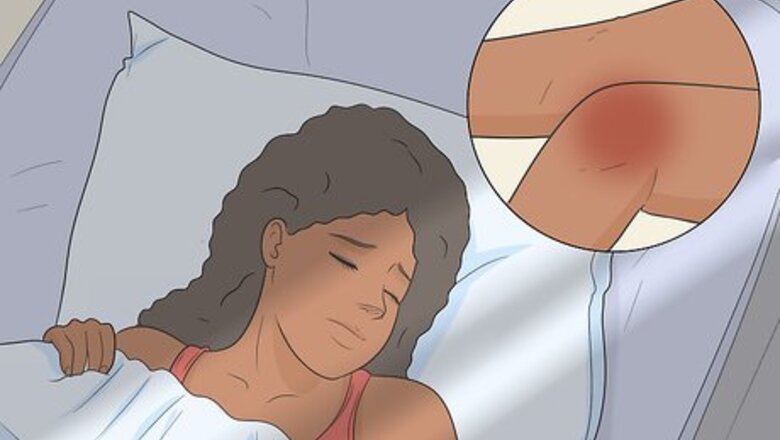
views
Taking Medications
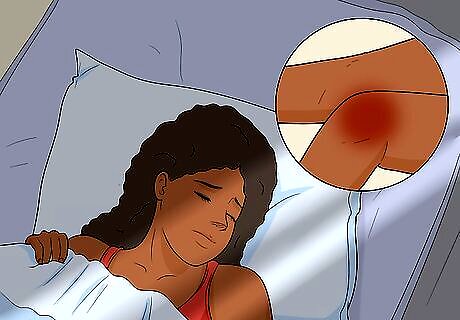
Learn the risk factors for gout. If you have gout, a type of arthritis from high uric acid levels, crystals can form in the fluid around your joints. Although older men are more likely to get it, it can affect anyone. Certain risk factors include a diet high in meat and seafood, obesity, chronic conditions like high blood pressure, diabetes, family history of gout or if you are on certain medications. Gout causes inflammation and attacks of joint pain (usually at night and experienced in your big or great toe), along with redness, swelling, warmth, and tenderness of the joint. The discomfort lingers for days to weeks after the attack ends and could actually develop into chronic gout, leading to impaired mobility.
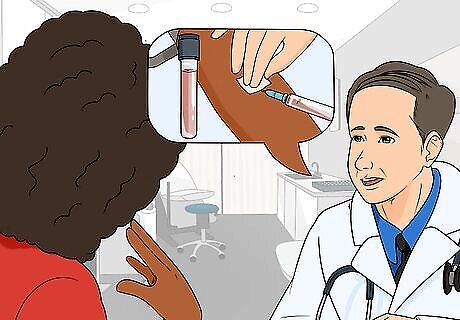
Go to your doctor for an exam. If you have chronic gout, or frequent or painful gout attacks, talk to your doctor about starting a prescription medication. Your doctor may do different tests to diagnose gout, including a blood test to measure your uric acid levels, a synovial fluid test (where a needle draws fluid from your joint), or an ultrasound or DECT scan to detect urate crystals. With the results of the tests, your doctor will be able to decide if and which medication you should start. Your doctor may prescribe medications like allopurinol, febuxostat, or probenecid.
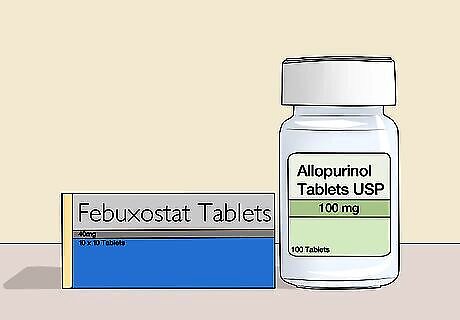
Take medication. Your doctor will most likely prescribe specific medications as a first form of treatment for chronic gout, like allopurinol (Aloprim, Zyloprim) and febuxostat (Uloric). While these medications can cause an initial increase in gout attacks, they'll eventually prevent them. Side effects of allopurinol include diarrhea, drowsiness, rash, and blood in your urine. Make sure to drink at least eight 8-ounce glasses of water a day when taking allopurinol. Side effects of febuxostat include rash, nausea, joint pain, and irregular heartbeat.
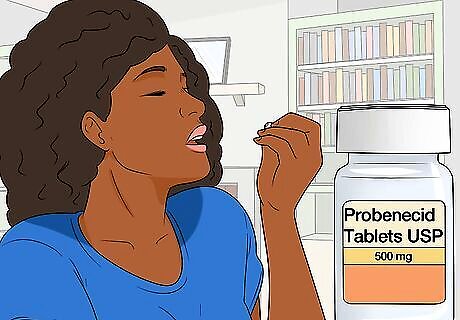
Try taking uricosuric drugs. These types of medications help your body to excrete more uric acid through your urine. Uricosuric drugs boost your body’s ability to get rid of uric acid. You'll probably be prescribed probenecid, but it's not recommended if you have kidney issues. Start by taking 250mg every 12 hours for the first week. Your doctor may increase the prescription over time. Side effects of probenecid include rash, joint pain, nausea, dizziness, and headache.
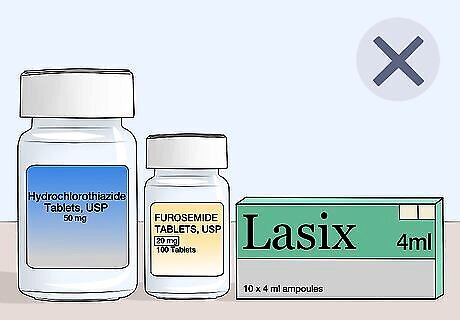
Avoid certain medications. Some medications, including diuretics, make you need to urinate more. This lowers the remaining amount of fluid in your body, but also increases the concentration of said fluid, which can contribute to gout. You should also avoid low doses of aspirin and niacin because they can also increase your uric acid levels. Don't stop taking medications without talking to your doctor. In many cases, there are alternatives available.
Making Diet Modifications
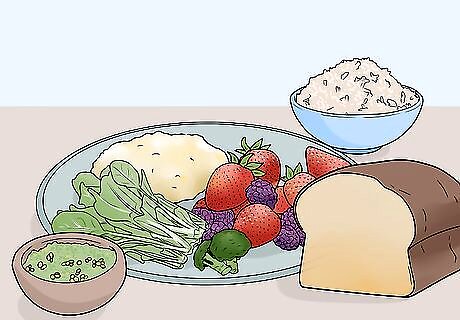
Eat a healthy, balanced diet. Try to eat healthy, fiber-rich foods and lean proteins. You should also avoid saturated fats, like cheese, butter, and margarine. Reduce your sugar intake, including high-fructose corn syrup and soft drinks, all of which can promote gout attacks. Instead try to include: Oats Spinach Broccoli Raspberries Whole-wheat items Brown rice Black beans Cherries (Cherries can reduce gout attacks. One study showed that eating 10 cherries a day protected people from gout flare ups.) Low-fat or non-fat dairy
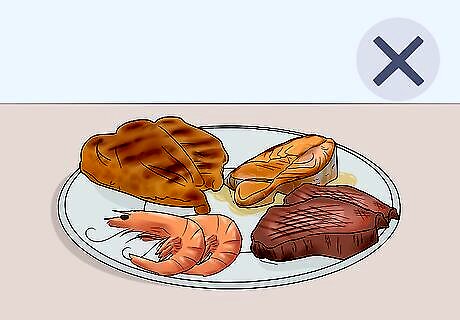
Avoid foods that can increase uric acid levels. Naturally occurring substances in food called purines are converted to uric acid by your body. Studies have shown that eating foods high in purines could lead to a gout attack within a few days of eating the foods. Avoid high-purine foods like organ meat (e.g. kidney, sweetbread, liver) and limit meats like seafood and red meat.
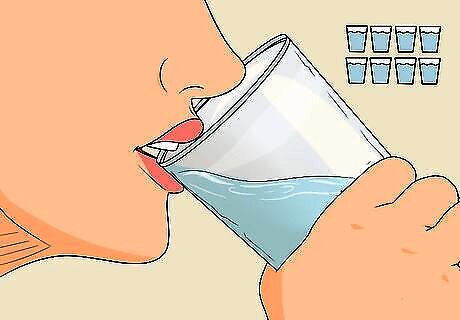
Watch what you drink and stay hydrated. Drinking six to eight 8-ounce glasses of alcohol-free fluids a day has been shown to help with gout. Liquids generally count toward water recommendations, but it's best to stick to water. You should also minimize or cut out drinking alcohol since it can metabolize and increase uric acid levels. If you do want to drink something other than water, look for drinks that aren't high in sugar, high-fructose corn syrup, or caffeinated. Sugar can increase your risk of gout and caffeine can be dehydrating. You can still drink coffee in moderation (two to three cups a day). Some studies show that coffee may reduce the levels of uric acid in your blood, although the studies do not show a decrease in gout attacks.

Get more vitamin C. Some studies show that vitamin C may reduce the levels of uric acid in your blood, although the studies do not show a decrease in gout attacks. It's suggested that vitamin C can help your kidneys excrete uric acid, but isn’t a lot of conclusive research yet. Consider taking a 500 mg daily supplement after consulting your doctor. If you'd rather increase your vitamin C through your diet, try eating: Fruits: cantaloupe, citrus, kiwi fruit, mango, papaya, pineapple, strawberries, raspberries, guava Vegetables: broccoli, brussels sprouts, cauliflower, green and red peppers, spinach, cabbage, turnip greens, white potatoes, tomatoes
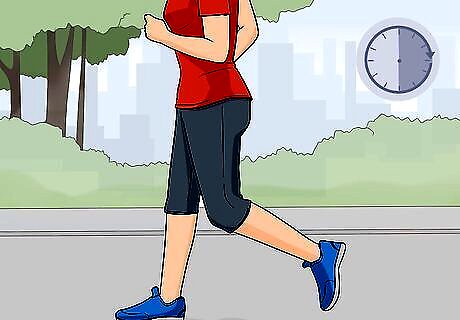
Exercise. Try to exercise for at least 30 minutes a day—this can help you lose weight, which lowers your chances of developing gout. Weight loss has been linked to lower uric acid levels. Do whatever type of exercise is most manageable for you. For instance, if you can't jog for 30 minutes, try briskly walking for at least 15.















Comments
0 comment